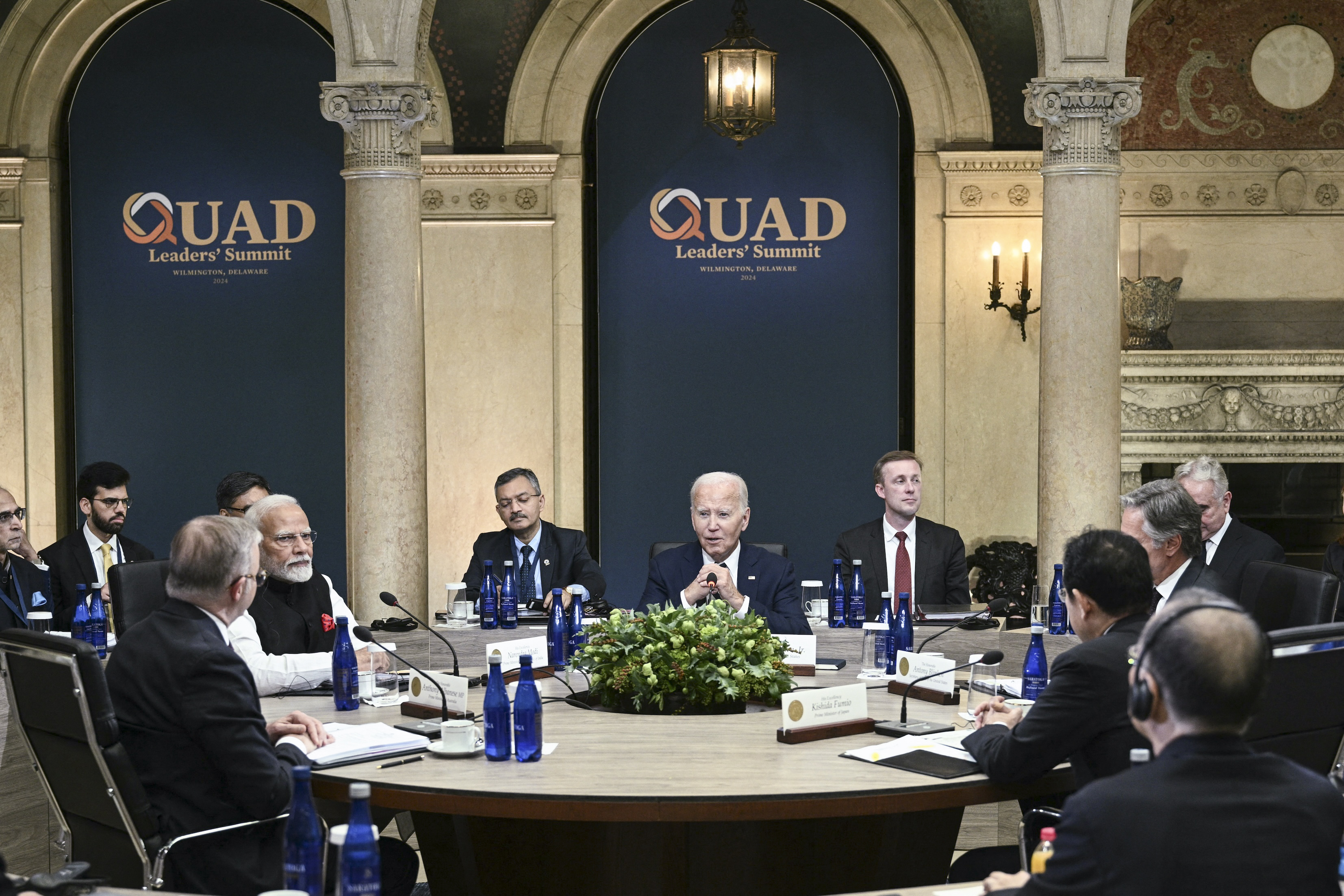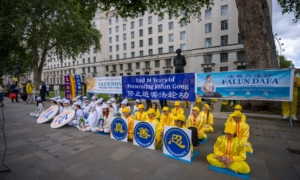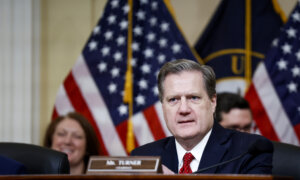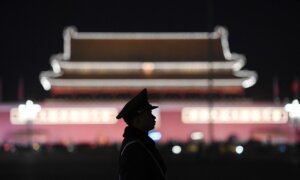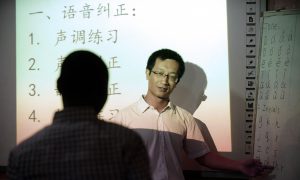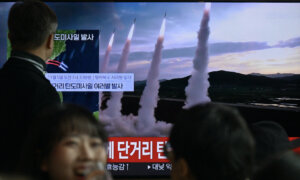President Joe Biden told leaders of Australia, India, and Japan that communist China is “testing us” with its aggression in the Indo-Pacific, a remark that was caught on a hot mic at a summit of the Quad alliance on Sept. 21.
The summit, which Biden hosted near his hometown of Wilmington, Delaware, was attended by Indian Prime Minister Narendra Modi, Japanese Prime Minister Fumio Kishida, and Australian Prime Minister Anthony Albanese.
After they delivered their opening remarks before the press, Biden told his Quad counterparts that Beijing’s recent actions were a “change in tactic, not change in strategy.”
“China continues to behave aggressively, testing us all across the region, and it’s true in the South China Sea, the East China Sea, South China, South Asia, and the Taiwan Straits,” Biden said.
“We believe [Chinese Communist Party leader] Xi Jinping is looking to focus on domestic economic challenges to minimize the turbulence in China, diplomatic relationships, and he’s also looking to buy himself some diplomatic space, in my view, to aggressively pursue China’s interest.”
The Quad leaders’ joint declaration did not mention China or Xi by name. “We are seriously concerned about the situation in the East and South China Sea,” the declaration says.
China’s economy is facing a crisis on multiple fronts, with disappointing August economic data for industrial production, retail sales, and youth unemployment. New home prices reported a nine-year low in July.
Meanwhile, U.S. companies’ optimism in China has fallen to an all-time low, according to a survey published by the American Chamber of Commerce in Shanghai earlier this month.
Japan has expressed concerns after a Chinese aircraft carrier entered its contiguous waters earlier this month, following two Chinese territorial incursions in August that prompted Japan to lodge a protest with Beijing.
In recent weeks, the Philippines has criticized Beijing for ramming its boats, blasting its boats with water cannons, and firing flares at its aircraft, with most of the incidents occurring around the contested Sabina Shoal in the South China Sea.
The Chinese regime, which claims Taiwan as a part of its territory, has been targeting the island with military provocations and gray-zone tactics such as cyberattacks. Taiwan’s defense ministry reported on Sept. 22 that it had spotted eight Chinese military planes and six military vessels in the island’s vicinity in the past 24 hours.
Summit
Biden was also caught on a microphone commenting on national security adviser Jake Sullivan’s visit to China in August.“We see this engagement as important for conflict prevention and crisis management amid our strategic competition,” Biden said. “We’ve secured some gains in U.S.–China bilateral relations that are important.”
Before the Quad summit, Sullivan downplayed the idea that the Quad’s focus is on China.
“My point is that the purpose of the Quad is not to come together around China or any other country. It’s to come together around how to construct a free and open Indo-Pacific,” Sullivan said. “And actions and policies that disrupt or undermine that are certainly not just of interest, but are going to be a matter of discussion for Quad members.”
Biden and Kishida talked about “their shared concerns about [the Chinese regime’s] coercive and destabilizing activities, including in the South China Sea” during their face-to-face meeting on Sept. 21, according to a White House readout.
The same concerns were also discussed between Biden and Albanese in their meeting, according to the White House.
The Quad leaders announced several joint initiatives, including the expansion of an existing Indo-Pacific Partnership for Maritime Domain Awareness initiative.
The leaders also agreed to a training initiative to help countries “monitor and secure their waters, enforce their laws, and deter unlawful behavior.”
Ryan Hass, director of the China Center at public policy organization Brookings, said Biden’s hot-mic moment “is sound and it is logically consistent with the way his administration has been approaching the U.S.-China relationship,” according to a post on social media platform X on Sept. 22.
“I expect the comments would be reassuring to allies/partners and unsurprising to Beijing,” Hass wrote.
Gordon Chang, a senior fellow at the Gatestone Institute and author of “The Coming Collapse of China,” wrote in an August article that China’s aggression against the Philippines meant that Xi “has decided to move on a weak neighbor.”
“The risk is that an attack on the Philippines will lead to general conflict in the region,” Chang wrote, adding that such a conflict would pit the coalition of China, Russia, and North Korea against the United States and its partners.
The Associated Press and Reuters contributed to this report.
